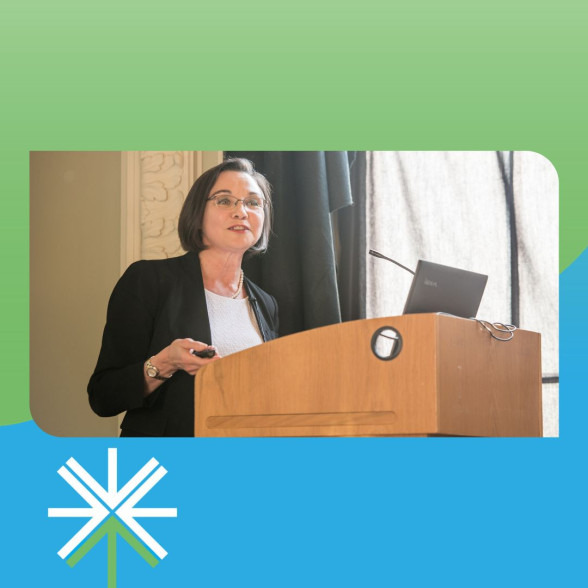UNCRPD Article 19: Living independently and being included in the community.
The United Nations Convention on the Rights of Persons with Disabilities (UNCRPD) was adopted on 12 December 2006 at the 61st session of the General Assembly by resolution A/RES/61/106. Since then, this Convention has been ratified by 186 countries. Ratification by a country (sometimes referred to as a Member State), means that countries are legally bound to respect the standards in the Convention.
Yet, for people with dementia, this is far from our reality, as although the World Health Organisation defined people living with dementia as people with disabilities over 15 years ago, countries, and the majority of researchers, health care providers, and advocacy organisations do not proactively support the rights of people with dementia as people with disabilities under the UNCRPD. There even remains a lack of adequate and equitable disability support to participate equally in projects, research, advocacy or within organisations. This equates to exclusion, not inclusion.
Furthermore, people with dementia continue to face major difficulties such as stigma, discrimination, paternalism, moral injury and therapeutic nihilism.
Hence, the majority of the 57 million people with dementia (2019) are not equitably included, and are frequently denied equal access in many areas from health care to rehabilitation, to social care, to proactive disability assessment and support, and to employment.
Inexplicably, dementia continues to be viewed and managed only within biomedical parameters. Thankfully, a precedent has been set, where in Australia, people with young onset dementia are advised that if they meet the criteria, they will be supported by the National Disability Insurance Scheme. This firmly places dementia as a disability, and although great for those with YOD, it is discriminatory of older people with dementia.
Once we place into the disability advocacy space, and move away from only a biomedical approach, it is easier to see how our rights are being denied, and how we are mostly being excluded, and denied the right to live in our communities with support if needed.
Whilst this blog is about the UNCRPD Article 19: Living independently and being included in the community, people with dementia are also on a quest to ensure no one is left behind, and, that they are not only included equitably, but their access to health and social care, and disability is provided. It is so much more than a few active advocates having a voice...
States Parties to the UNCRPD recognize the equal right of all persons with disabilities to live in the community, with choices equal to others. They
... shall take effective and appropriate measures to facilitate full enjoyment by persons with disabilities of this right and their full inclusion and participation in the community, including by ensuring that:
Persons with disabilities have the opportunity to choose their place of residence and where and with whom they live on an equal basis with others and are not obliged to live in a particular living arrangement;
Persons with disabilities have access to a range of in-home, residential and other community support services, including personal assistance necessary to support living and inclusion in the community, and to prevent isolation or segregation from the community;
Community services and facilities for the general population are available on an equal basis to persons with disabilities and are responsive to their needs.
As we consider if UNCRPD Article 19, it is critical to note Article 19 of the UNCRPDF says we have the right to live independently and to be included in the community. But this is being ignored, hence in a future blog, we will discuss possible reasons why.
As if often the case, there are more questions than answers, and I hope this blog and a recent one I was interviewed for will be a catalyst for change, and for a deeper examination of the status quo, and why the status quo needs to change. Here are just a few questions to consider when thinking about this.
Why are people with dementia still being institutionalised and segregated when they need assisted living, and not being supported to live in their community?
Why are the UN Deinstitutionalization Guidelines not being embedded into government policies, and into practice in the aged and dementia care sector, in terms of assisted living alternatives to large, institutions where known harms and rights violations occur, with no accountability of perpetrators of these harms?
Why are people with dementia increasingly being ‘included’ in research and advocacy work and campaigns, but not paid fairly for their lived or professional expertise?
To help us to better understand the human rights of persons with disabilities, put simply, it means that everyone, including people with disabilities due to a diagnosis of dementia, have the same human rights, including civil, cultural, economic, political and social rights as all others. Examples include:
Non discrimination
Right to life, liberty and security of the person
Equal recognition before the law and legal capacity
Freedom from torture
Freedom from exploitation, violence and abuse
Right to respect physical and mental integrity
Freedom of movement and nationality
Right to live independently in the community
Freedom of expression and opinion
Respect for privacy
Respect for home and the family
Right to education
Right to health
Right to work
Right to an adequate standard of living
Right to participate in political and public life
Right to participate in cultural life
It is almost the end of 2023, and the time is now for us to work together to ensure no one is left behind.
#Leavenoonebehind
#SDGs
#UNCRPD
#LivingIndependently
